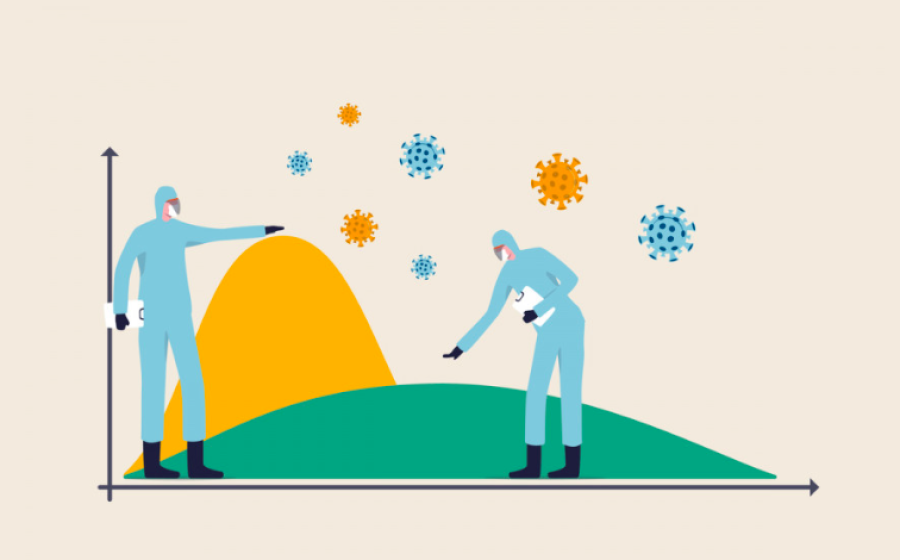Editorial
Prevention is cure
The Deuba administration has to end this loop of madness and rope in top experts in the field to assess our latest situation.
Nepal is reporting 2,343 new infections on average each day, according to the daily data released by the Health Ministry. There are projections that the third wave of the Covid-19 pandemic will hit Nepal within seven weeks. But some epidemiologists and infectious disease doctors believe the situation could spiral out of hand sooner than expected as the Delta variants of the coronavirus confirmed in Nepal are as contagious as chickenpox and more likely to evade protections offered by the existing vaccines. Already, there are ‘breakthrough infections’ being reported among the fully vaccinated, and although the vaccines prevent severe disease and hospitalisations, there are concerns that the vaccinated may spread the virus. Amid these risks, there are concerns that the new wave could be lethal to the unvaccinated population, especially children, as the average number of new infections rise for seven days straight.
In the week ending July 16, the effective reproduction rate of Covid-19 or the ‘R’ factor, based on a seven-day average, stood at 0.97. On July 31, it stood at an alarming 1.18. Data show that we have lost a crucial fortnight to control the spread of the coronavirus, and the rising ‘R’ factor has renewed fears of the May mayhem as hospital admissions increase. We know, given our fragile and inequitable health infrastructure and a deadly second wave, that things will quickly come to a standstill and will only get worse before they get better. Saving lives is the government’s biggest responsibility right now, and there is no room for token directives and actions, but the Deuba administration has done just that as more than one in five tests continue to return positive despite inadequate testing.
On Friday, the Covid-19 Crisis Management Centre, whose relevance has already come into question, proposed that the government impose a ‘smart lockdown’ in affected areas instead of a blanket lockdown following the Health Ministry’s statement that a third wave could rage across the country. But technically speaking, Covid-19 hotspots in the country are already under some sort of prohibitory orders following the botched reopening with no mechanism to implement public health protocols and social measures to break the chain of transmission and ensure the safety of the people. Instead, the government has turned a blind eye since the decline in new cases, hospital admissions and deaths following the deadly second wave. Besides schools and theatres, almost everything in the market is open and runs as if there is no pandemic. It is not hard to figure out how the increase in social mixing and mobility and lax public attitude have contributed to the recent spike in new infections, but the government is equally to blame for it is its duty to ensure that public health and social measures are implemented strictly to prevent infections and save lives.
Sixteen months into the pandemic, the country still doesn’t have any serological data. Testing remains insufficient to give us an accurate scale of the spread, and a bunch of bureaucrats and security personnel call the shots that directly impact our lives. The Deuba administration has to end this loop of madness and rope in top experts of the field to assess our latest situation so that we have a science-guided action plan to break the chain of transmission and an implementable reset strategy to keep the economy afloat. Last week, the World Health Organisation warned that the Covid-19 virus is getting ‘fitter and faster’ and infections have increased in every region of the world. According to lead WHO epidemiologist and Covid-19 technical lead Dr Maria Van Kerkhove, the Delta variant is ‘dangerous and the most transmissible coronavirus to date’ lest we need a reminder that the Delta variant is the dominant variant in Nepal and its sub-lineage Delta Plus has also been detected. The Deuba administration must heed the warnings.




 13.12°C Kathmandu
13.12°C Kathmandu














